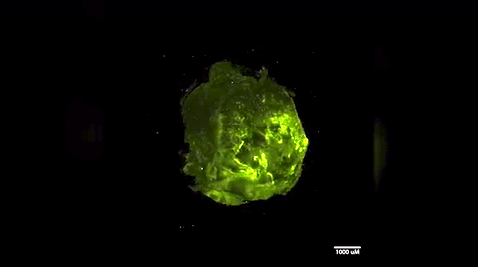Female shark learns to reproduce without males after years alone
By Alice Klein Who needs men? A female shark separated from her long-term mate has developed the ability to have babies on her own. Leonie the zebra shark (Stegostoma fasciatum) met her male partner at an aquarium in Townsville, Australia,…
Jamaica dominated CCIC boot camps in 2016
By Tomeica Gunn From JIS Story Highlights Approximately 40 green technology start-up entities have been established through the Caribbean Climate Innovation Center’s (CCIC) seven boot camps held across the region in 2016. Project Manager, Carlington Burrel, says that of these,…
Liquid battery could last for over 10 years
By Jon Fingas From engadget It might be an ideal form of energy storage for solar and wind power. Modern batteries aren’t hampered so much by their capacity as their long-term lifespan — a lithium-ion pack can easily become useless…
EOI: Geothermal Project Coordination on consultancy basis, Grenada, Caribbean
By ALEXANDER RICHTER From Think Geo Energy A request for expressions of interest has been launched for the Coordination of a Geothermal Energy Project on a consultancy basis for Grenada in the Caribbean has been launched. The Caribbean Development Bank…
New timeline for our solar system estimated
From Deccan Chronicle Scientists from Massachusetts Institute of Technology (MIT) in the US and their colleagues have estimated the lifetime of the solar nebula Astronomers have estimated the new lifetime of the solar nebula which suggests that the gas giant…
Primitive plants survive almost two years in outer space
By Andy Coghlan From New Scientist Primitive plants are the latest forms of Earth life to show they can survive in the harshness of space, and for many months. Cold-loving algae from the Arctic Circle have joined the space-travelling club,…
Fukushima reactor’s radiation levels killed a cleaning robot
By Mariella Moon From engadget The machine was pulled out two hours into its mission. Tokyo Electric Power Co. (Tepco) wasn’t kidding when it said the radiation levels inside Fukushima’s nuclear reactor are the highest they’ve been since its meltdown…
Scientists make battery that runs on air and carbon dioxide
By Jamie Rigg From engadget Researchers at Penn State University have potentially come up with yet another way we could create energy from all that nasty carbon dioxide we pump into the atmosphere. They’ve developed an inexpensive flow cell battery…
Cambridge is giving cancer the 3D VR treatment
By Devin Coldewey From TechCrunch It’s always good to hear that scientists are bringing the latest technology to the fight against cancer, but virtual reality doesn’t seem like an obvious addition to the arsenal. Yet it’s VR and 3D visualization…
A 30-foot-hole is growing in America’s tallest dam — but officials say there’s no threat to thousands of residents nearby
Reuters From Business Insider (Reuters) – A 30-foot hole has appeared in a section of the tallest dam in the United States that is expected to worsen, but there was no immediate threat it will fail, endangering thousands of area…







